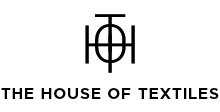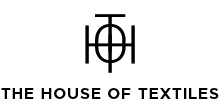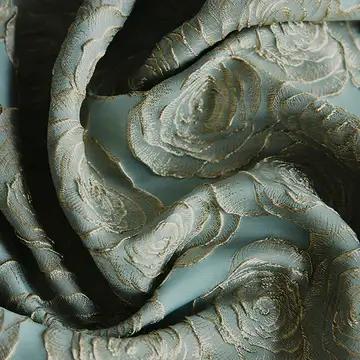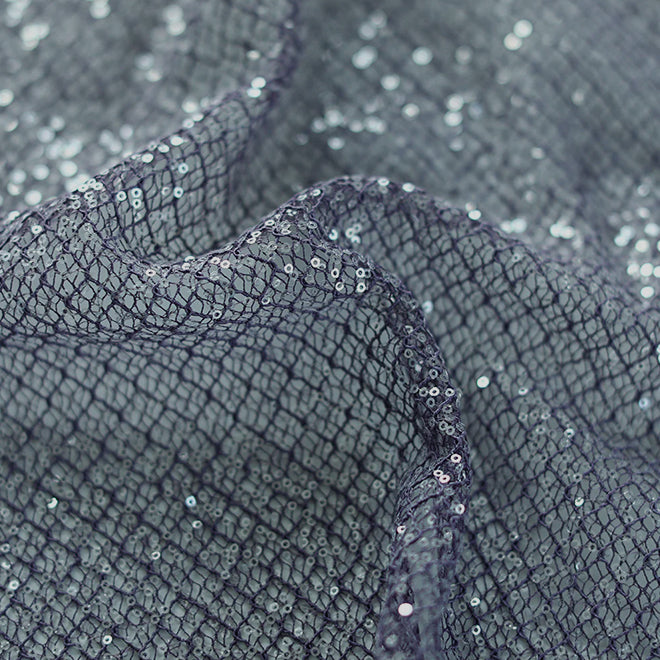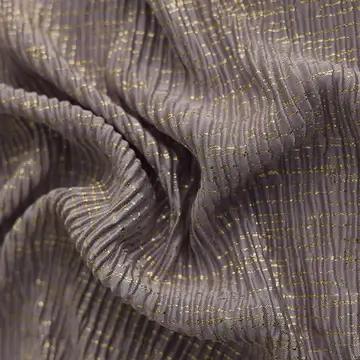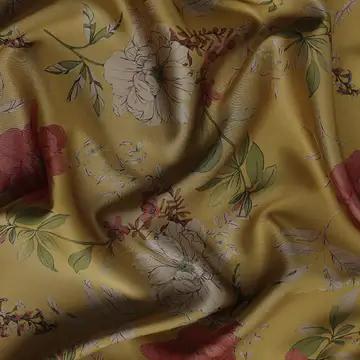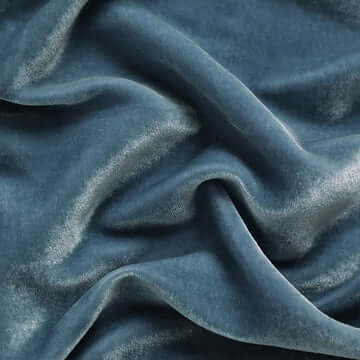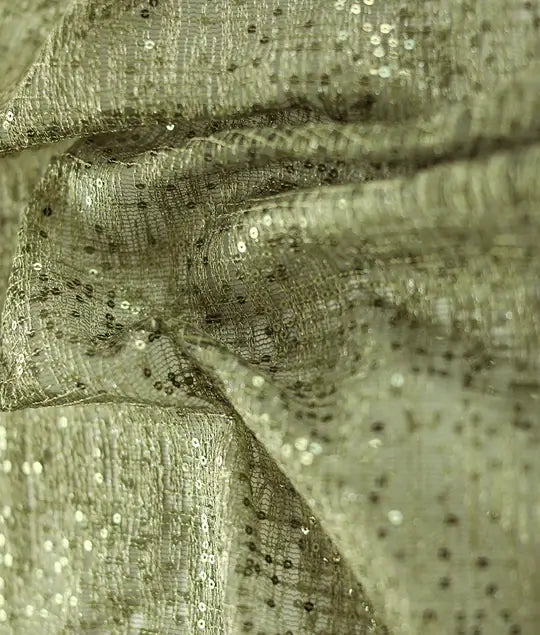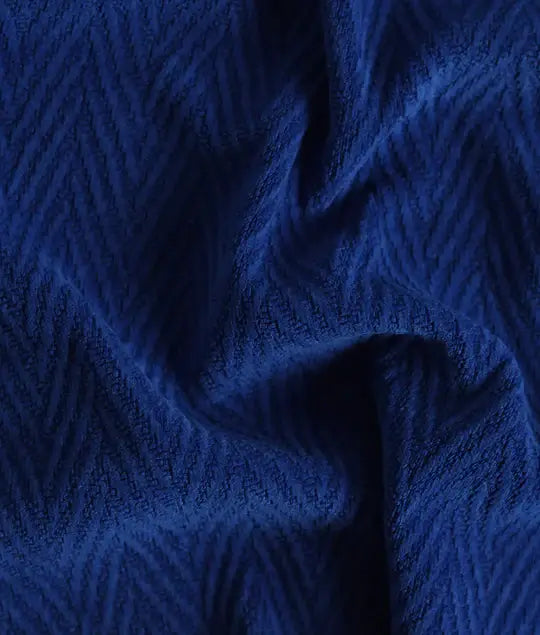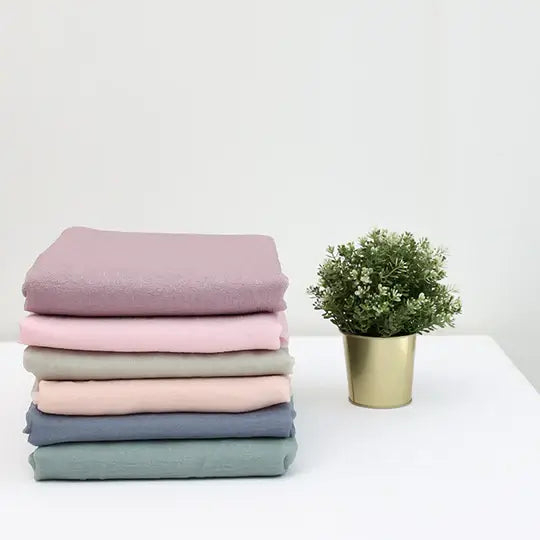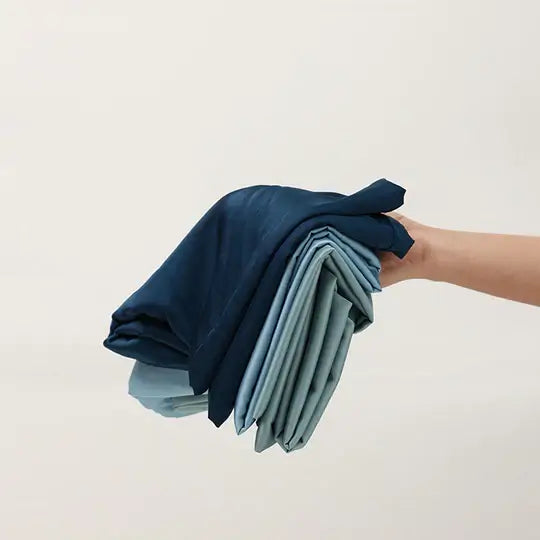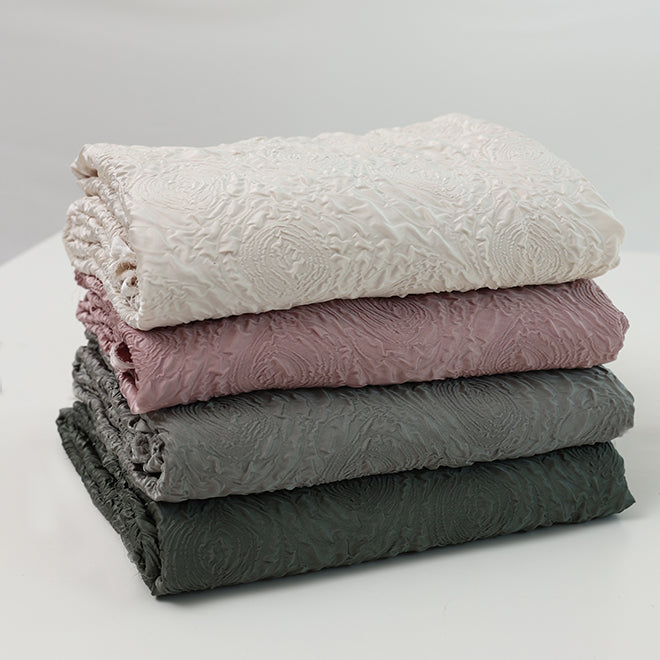The Pros And Cons Of Different Fabrics
Clothing design and creation depends heavily on fabric. Picking the right material is as crucial as deciding on size and color. With tons of choices out there, picking the best fashion fabric can be a mountain task. To nail the fabric selection process, understanding fabrics is key. Each fabric has its own pros and cons. Here are some of the pros and cons of different types of fabric.

Polyester
Polyester, a popular synthetic fashion fabric, is the product of a chemical reaction between natural elements. It’s not prone to shrink, plus it's really sturdy. Acting like a thermoplastic, it can melt and reshape. The feel? Smooth and warm. You'll often find polyester mixed with other natural or synthetic fabrics. Bonus: it even helps block mildew growth.
- Pros
- Retains heat
- Doesn’t let water soak in
- Keeps wrinkles at bay
- Comfortable and strong
- Can bend and flex
- Dries faster than cotton
- No hassle to wash or clean
- Adapts to many uses
- Treat it right, it lasts ages
- Cons
- Sweaty skin sticks to polyester
- It's not very permeable
- Most of the time, polyester is not environmentally beneficial
- Polyester that is lighter in color is more prone to stains than that of darker color
- Because of its sensitivity to high temperatures, it could melt
- Because it's a synthetic fabric, it may irritate skin
Silk
Silk is an eco-friendly fiber that works well for creating fashionable clothing. The fashion fabric is elegant and incredibly soft. Silk is a pricey fabric choice for clothing. The Bombyx mori moth produces silkworms, which are the source of the finest silk. There are many different patterns and colors on the market for you to select from. Silk is a strong material that holds its shape well. One of the most sought-after materials nowadays is silk. The reason for this is that silk is among the world's softest and smoothest textiles.
- Pros
- When cared for properly, silk can outlast other types of fabric.
- It comes in a vast array of weights, patterns, and colors
- It looks elegant and formal yet is soft and comfortable to wear
- There are temperature-regulating qualities to this fabric
- It is recyclable and biodegradable
- It is odor-resistant
- Cons
- It is pricey
- It needs to be dry cleaned
- The light fabric is easily stained
- It reacts poorly to places with kids, pets, and bright sunlight
- Not very sturdy fabric
Velvet
In recent years, velvet has triumphantly showed up. The rich, deep shine of the fashion fabric gives it an upscale appearance. Velvet is typically utilized in winter clothing, such as skirts, slacks, and jackets. It's also excellent for creating furniture and home accents like poufs, couches, and armchairs.
- Pros
- Robust
- Durable
- Comfortable to the touch
- Cons
- Statically charged easily
- A shadow-like illusion can appear due to changes in shine on fabric areas that touch other surfaces often
Crêpe
The term crêpe refers to a fashion fabric that can be silk, wool, or man-made, twisted tightly to add some texture. Though a favorite for ceremonial clothes, it's used widely too for other attire.
- Pros
- Lightweight
- Breathable
- Cons
- Not washable in a machine
Georgette
Georgette is a kind of thin, tight crêpe that has a crinkly, thin appearance. It is utilized in the same way as standard crêpe fashion fabric to make dresses, blouses, and scarves.
- Pros
- Fits well
- Lightweight
- Sturdy
- Resistant to damage
- Cons
- Not washable in a machine
- Has a rough feel
Leather
A popular natural and renewable fabric in the fashion industry, leather is used to create stylish clothing. It has an elegant appearance and is a very comfortable fabric. Animal skin is removed, dried, salted, tanned, colored, and finished with a finishing spray to produce leather. Leather is very stain and mildew resistant. In addition, the fabric is very comfortable and is unaffected by UV rays.
- Pros
- Scratch-hiding properties make it suitable for areas where usage is somewhat rashiest
- With time, it becomes more comfortable and ages well
- Cleaning leather is much simpler
- If properly cared for, leather can outlast other fabrics and is a timeless, fashionable material
- The hypoallergenic nature of leather is a benefit
- It is resilient and strong
- It doesn't retain smells like other textiles either
- Cons
- In warm settings, it can become sweaty and uncomfortable
- It costs a lot more than comparable fiber products
- It will eventually appear dirty if the user has not given it the necessary care
- It doesn't breathe well
Linen
Linen is a well-known natural fashion fabric that is frequently used to make clothing. It combines with other organic fibers to increase its wrinkling resistance. This fabric is ideal for hot days because it is lightweight and incredibly breathable. Plants are the source of linen cloth. Its flax plant is the source of its fiber. Additionally hypoallergenic by nature, linen is beneficial for those with sensitive skin types or allergies. Otherwise, it could get wrinkles and scratches, so it needs to be handled carefully. To prevent shrinking, linen fabric must be professionally cleaned.
- Pros
- The fabric is cosy and breathable
- It is reasonably priced
- It is incredibly durable and resistant to fading and pilling
- A cloth with little upkeep
- It's washable in a machine
- Linen appears lovely
- Cons
- It is not suitable for frequent use or severe wear
- The fabric requires expert cleaning and upkeep because it wrinkles and soils easily
- It frequently gets smaller

Wrapping Up
Good fabrics are a crucial component in the dressmaking process. Various fashion fabric kinds have various characteristics. These are a few of the most widely used materials to make clothing. You can evaluate each fabric against the others and choose the best one for your upcoming project based on your unique requirements. You can choose a fabric that will last longer and fulfill your needs in daily life by weighing the advantages and disadvantages of various fabric types. Check out The House of Textiles where you can get all kinds of fashion fabrics, embroidery fabric and much more for your clothing needs.
